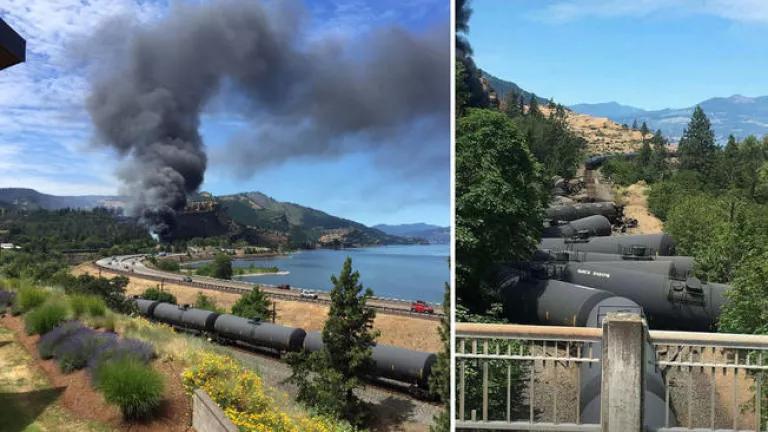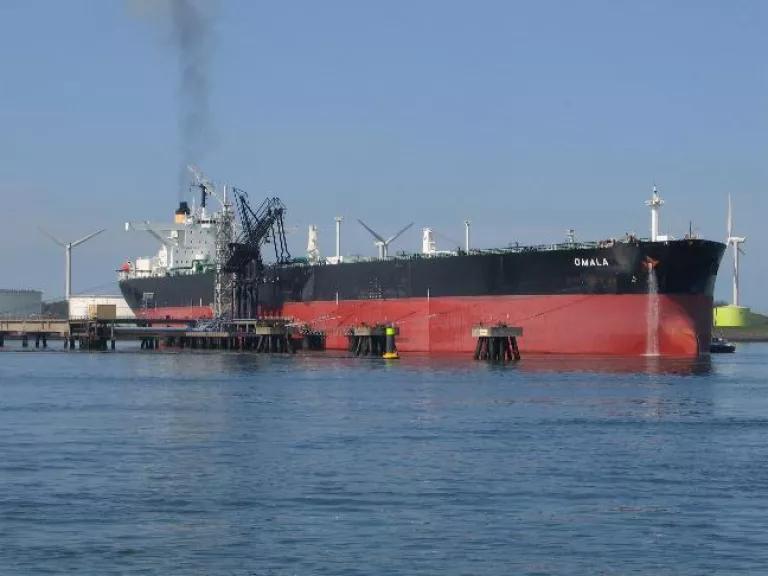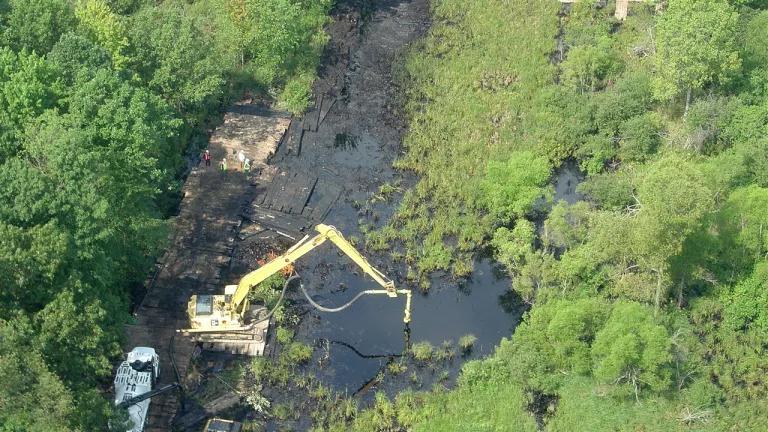Protecting California From the Realities of Nonfloating Oil
AB 936, signed by Gov. Gavin Newsom on October 12, 2019, takes proactive steps to prepare California for the risks of a nonfloating oil spill.

June 3 oil train derailment near Mosier, OR
On October 12, 2019, California Governor Gavin Newsom signed a suite of fossil fuel-related bills into law that take important steps to prioritize communities, public health, and the environment over the oil industry. Among these bills was AB 936, authored by Assembly Member Robert Rivas and strongly supported by NRDC and our partners at San Francisco Baykeeper. This bill recognizes the novel challenges posed by nonfloating oils, fills critical gaps in spill response and preparedness related to these challenges, and improves community awareness of oil transport throughout the state.
In a perfect world, laws like AB 936 wouldn’t be necessary. The wholesale realignment of our global economy in response to the global climate crisis should have long ago led to the decline of fossil fuel use. In turn, the exploitation of unconventional crude oils like the bitumen found in Canada’s tar sands or Venezuela’s Orinoco Belt would never have happened. In turn, the need for oil spill response tactics for dealing with oils that are heavier than water—and thus almost impossible to clean up when spilled—would not exist. If only we lived in this world.
As it stands, California’s own heavy oil production—around which the state’s massive refining industry was built—has been on the decline for decades. This decline, coupled with the need to fuel 30 million cars and trucks, has necessitated a gradual increase in imports of heavy oils from out of state, with Alaska, Canada, Mexico, and sometimes Venezuela providing heavy crude feedstocks for California’s refineries. In nearly all cases, this oil is entering the state either by tanker or rail car, thereby imperiling California’s precious freshwater and coastal resources in the event of a spill.
Luckily for California and its rivers and coastlines, the volumes of these imports have remained relatively low for years. However, Canada’s tar sands industry has been pushing for nearly a decade to change that reality. The Trans Mountain Expansion pipeline would triple the volume of tar sands oil currently moved to Canada’s West Coast, where industry players hope to load it onto tankers destined for California’s shores. California’s attractiveness to the industry is obvious: the state’s current refinery output and capacity is sufficient to absorb a great deal of tar sands oil and it is the closest, most established, and cheapest-to-reach refining market for tar sands oil.

More than 400 massive oil tankers will pass through orca habitat every year if the pipeline is built
If the Trans Mountain project were to ever be built, California would thus be faced with a significant influx of tankers carrying tar sands oil—one of the world’s best-known nonfloating oils. It is this potential risk—and the risk posed by the limited volumes already transported on or near state waters—that AB 936 seeks to confront by better preparing California’s spill response agencies and emergency first responders. By recognizing the unique properties of nonfloating oil, requiring spill contingency planning processes to specifically address these oils, and increasing state regulator and public awareness of these oils’ movements within the state, the new law seeks to mitigate as many of the negative effects that a future spill could have. In doing so, California joins and expands on similar efforts undertaken by Washington State to address oils that are likely to sink or submerge when spilled in water.
NRDC is extremely proud of California for taking a proactive step toward protecting its natural resources and coastal economy from the risks posed by nonfloating oils. While cities, states, and countries grapple with the monumental challenge of ending our fossil fuel addiction, the oil industry’s push into unconventional heavy oils has come along with a host of challenges. Our regulators and first responders have not to date been fully prepared to confront these challenges with existing legal authorities and technical capacities. AB 936 fills this void while the hard work of ending demand for these oils altogether continues apace.




